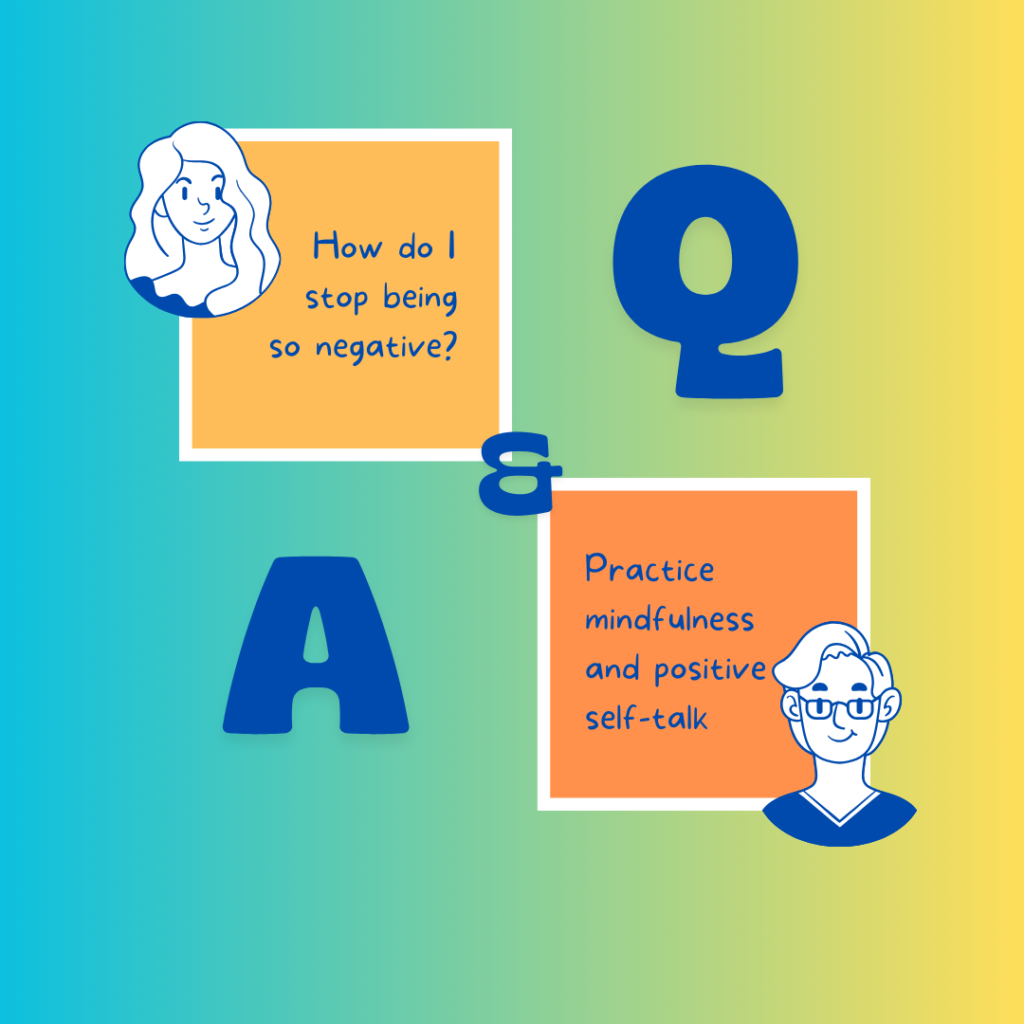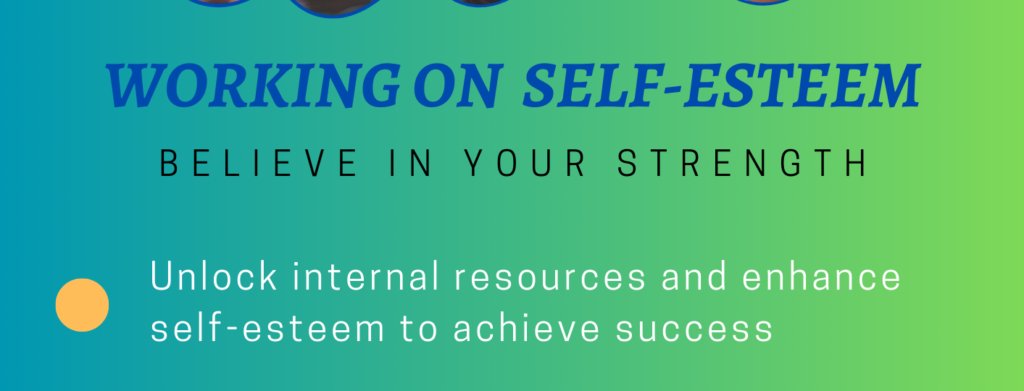
Positive self-talk is a powerful tool that enables us to quiet our inner critic and foster self-belief, resilience, and happiness. By challenging negative thoughts, practicing self-compassion, and incorporating positive affirmations, we can rewire our minds to think more positively and constructively.
Have you ever noticed a small voice in your head?
The one who expresses doubts and criticisms quietly (or sometimes loudly)? This, my friend, is your inner critic. We all have one, and although it might help keep us safe, it can also be extremely detrimental to our self-esteem and motivation.
The good news is that we can counteract negativity with an effective tool: positive self-talk.
Understanding The Inner Critic
The inner critic is the nagging voice that continuously sees flaws in our actions, appearance, and skills. It hits us with self-doubt, comparison, and negativity, eventually restricting our potential. Recognizing and confronting the inner critic is essential for personal development and self-acceptance.
Our inner critic functions as a protection mechanism, preventing us from making mistakes or taking risks that may harm us. However, it frequently goes beyond, scolding us for even little mistakes or flaws. This steady stream of self-criticism can destroy our confidence and limit our ability to achieve our goals.
What is Negative Self-Talk?
Negative self-talk is our inner voice expressing self-critical and negative comments about ourselves. Such ideas are frequently negative, mean-spirited, or unfairly critical, and they can lead to a loss of self-confidence and self-esteem, restricting one’s potential and abilities.
According to research, negative self-talk can be harmful to our minds and bodies, causing greater stress, poor mental health, and low self-esteem. It can harm one’s relationships and impair one’s capacity to achieve goals.

Negative self-talk can result in cognitive distortions, which are illogical or excessive negative ideas and beliefs that distort reality. For example, someone may constantly criticize themselves for minor physical faults, resulting in a bad body image. These negative ideas can trigger anxiety, depression, and even eating problems.
Identifying and challenging negative self-talk is an important step toward overcoming it. This involves questioning the validity of negative thoughts and replacing them with positive and realistic alternatives. Positive self-talk can be used to rewire beliefs and reinforce positive thinking, leading to a healthier and more empowering mindset. It is also necessary to exercise self-compassion, reminding oneself to treat one’s mistakes with kindness rather than punishing oneself for them.
What is positive self-talk?
Positive self-talk is the intentional replacement of negative thoughts with encouraging and uplifting ones. It’s about treating yourself with the same regard and empathy that you would show to a friend going through a difficult period.
The Power of Positive Self-Talk
Positive self-talk is the purposeful replacement of negative thoughts and self-criticisms with affirmative, encouraging, and constructive statements. It involves consciously choosing to focus on our strengths, support ourselves, and reframe negative situations in more positive ways.

Engaging in positive self-talk can provide several benefits:
Increased confidence
Positive self-talk helps us believe in ourselves and have more confidence. It enables us to recognize our abilities and capabilities, resulting in a more positive self-image and a higher willingness to move beyond of our comfort zone.
Improved mental health
Positive self-talk has a tremendous effect on our mental health. By replacing negative ideas with good ones, we can lessen anxiety, and tension, and improve general emotional well-being.
Enhanced Resilience
When faced with a hardship or failure, positive self-talk allows us to recover more efficiently. It enables us to see barriers as opportunities for growth and learning, so increasing our resilience in the face of adversity.
Increased motivation
Positive self-talk keeps us motivated and determined. We stay motivated to pursue our goals and objectives by focusing on our strengths, remembering prior achievements, and imagining positive outcomes.
How to Cultivate Positive Self-Talk
Ready to silence your inner critic and embrace the power of positive self-talk? Here are a few tips:

Catch yourself in the act: The first step is to become aware of your negative self-talk patterns. Pay attention to the thoughts that run through your head, especially when you’re feeling down or facing a challenge.
Challenge your negative thoughts: Once you identify a negative thought, ask yourself if it’s true and helpful. Often, our inner critic is exaggerating or focusing on the worst-case scenario.
Reframe your thoughts: Replace negative thoughts with positive affirmations. For example, instead of thinking “I’m going to fail,” tell yourself “I can learn from this challenge and improve.”
Use encouraging language: Talk to yourself the way you would talk to a friend you care about. Use words like “capable,” “strong,” and “deserving.”
Focus on progress, not perfection: We all make mistakes. Instead of dwelling on setbacks, celebrate your progress and focus on learning and growing.
Practice gratitude: Taking time to appreciate the good things in your life can shift your perspective towards positivity.
Strategies for Promoting Positive Self-Talk
Positive self-talk entails intentionally changing our internal conversation from negative to helpful. Instead of criticizing and doubting ourselves, we choose to be compassionate, encouraging, and optimistic.
Recognize and fight negative self-talk.
Start by becoming aware of any negative ideas or self-criticism that come into your head. Challenge these assumptions by questioning their validity and proposing positive and realistic alternatives.
Practice self-compassion.
Treat yourself with respect and compassion.
Instead of berating yourself for mistakes, engage in loving and encouraging self-talk. Recognize that making mistakes is a normal aspect of learning and that you deserve love and understanding.
Use positive affirmations for Positive Self Talk
Add positive affirmations to your daily routine. Repeat affirmations like “I am capable,” “I deserve success,” or “I am worthy of love and acceptance.” Affirmations serve to reset our beliefs and reinforce positive self-talk.
Surround yourself with positivity!
Surrounding yourself with good influences strengthens your practice of positive self-talk. Seek out helpful relationships, participate in activities that motivate you, and consume uplifting content that encourages positivity.
Keep a gratitude notebook.
Keep a gratitude journal regularly. This exercise directs your attention to the positive aspects of your life, encouraging a more hopeful and thankful attitude.
Finally,
Embracing a positive mindset
Positive self-talk is an effective method for quieting the inner critic and cultivating a sense of self-confidence, resilience, and self-compassion. By confronting negative ideas and replacing them with affirming and empowering comments, we can break the cycle of self-doubt and negativity, allowing for personal growth and fulfillment. So, the next time that inner critic speaks up, reply with love and positivity, knowing that you can alter your ideas and beliefs to create a brighter, more confident future.




